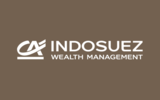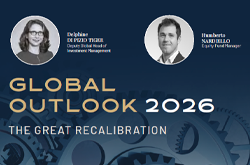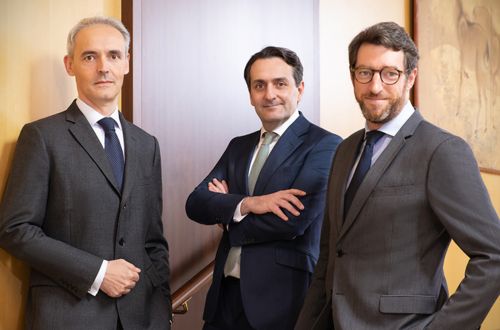Taking advantage of the growth momentum of small and mid-caps
There are both cyclical and structural explanations for the earnings growth momentum of the small and mid-cap segment.To understand the advantages of this attractive asset class over time, we interviewed Marie-Ève Poulain, manager of the Vendôme Sélection fund at Indosuez Gestion, one of the top funds in its category as ranked by Morningstar.
It is often believed that small caps have greater growth momentum than large caps. What do you think?
The small and mid-cap segment outperforms large caps significantly over the long term with only three years of underperformance in the last 10 years. The explanation for this outperformance stems from its structural advantages, starting with a diversified investment universe enabling the exposure to various themes, many of which are very promising.
In addition, the earnings growth momentum of companies in this segment is stronger than large caps over time. They are often niche stocks with strong barriers to entry and/or world leaders or even companies that have an established position in promising, dynamic activities for the long term and have cycles that may be independent of the macroeconomic environment.
They are also often family or entrepreneurial companies, which have several advantages. The majority shareholder is usually highlyinvolved in the company’s strategy, and their governance structure ensures that the interests of shareholders and management are better aligned. They have a long-term vision, generally have less debt, and are more cautious in managing their investments and acquisitions. They are often more innovative, and their size makes them more flexible and more responsive, meaning they have greater control over profit margins. As a result, their restructuring is easier.
Given all these advantages, they are a natural breeding ground for buyouts.
You mentioned innovation and promising themes. Has the COVID-19 crisis brought certain business sectors to light?
The COVID-19 crisis has indeed accelerated the transformation in progress and has thrown us into the world of tomorrow, characterised especially by a renewed interest in the healthcare sector, new consumption habits, development of digitalisation, and energy transition. However, small and mid-caps are well represented among those themes, which contributes to their attractiveness.
You manage the Vendôme Sélection fund, which is one of this category’s top-ranked funds. What is that fund’s investment policy?
Vendôme Sélection was created in 1984 and invests in a selection of French small and mid-cap stocks. We have an opportunistic, active investment approach based on strong convictions and independent of benchmark indices. Our stock-picking approach is based on fundamental research that has proven its value over many years. When choosing companies, we pay particular attention to the quality of their business model and the entrepreneurial side of their management. We have a very wide investment universe and choose companies with attractive valuations compared with their peers and their historical average as well as the position in the business cycle.
Our focus is therefore on:
- companies offering “visible growth”, positioned in niche or fragmented markets, that have growth drivers (innovation, exposure to emerging countries, etc.) or benefit from long-term dynamics (healthcare, environment, infrastructure, etc.);
- companies “restructuring” themselves: repositioning of the group’s strategy, cost cutting, restructuring of balance sheets, and the arrival of new management.
- “discounted leaders”: companies with a historically low valuation whose share price is less than its intrinsic value.
The fund aims to outperform its benchmark index, the CAC Mid 60 (net dividends reinvested), over a recommended investment period of five years.
What makes investing in this fund relevant today?
Vendôme Sélection is invested in sectors that will drive the economic dynamics of tomorrow, including the healthcare sector as I mentioned before. This sector has been supported in particular by the increase in government budgets dedicated to it or the relocation of drug production and has once again become central in our societies.
The ageing of the population, the shift in consumption habits towards e-commerce and the growth of “do it yourself”, the digitalisation of society, and all matters relating to protecting our environment are other investment themes represented in the small and mid-cap segment. The trends of tomorrow are fuelling the attractiveness of this segment today.
Main risks of the Vendôme Sélection fund
Risk associated with discretionary management: The portfolio’s performance depends on the stocks of companies chosen by the manager. Therefore there is a risk that the portfolio may not be invested in the sectors delivering the best performance at all times and that the allocation between the different markets may not be optimal.
Equity and market risk: Since the fund is exposed to the equity markets, the portfolio’s assets under management may fall in the event of a decline in the equity markets.
Risk associated with small and mid-caps: The volume of these securities on the stock market is reduced, making market movements more pronounced in both directions and faster than for large caps. The fund’s net asset value may therefore decline quickly and significantly.
Risk of capital loss: The investor is warned that the capital is not guaranteed and may not be returned in full.
The funds invested by investors will be placed in UCIs and financial instruments selected by the asset management company. These instruments will be subject to market fluctuations and uncertainties. The risk factors described below are not exhaustive. It is up to investors to analyse the risk inherent in such an investment and to form their own opinion.
Under no circumstances can this article be considered as an offer to subscribe to a life insurance policy or capital bond, or an offer or solicitation, or canvassing for the purpose of subscribing to financial products or services. It has not been designed and is not intended for persons in any particular country. It is not intended for persons who are citizens, domiciled for tax purposes or resident in a country or jurisdiction where its distribution, publication, availability, or use would breach the applicable law or regulations. You are recommended to carefully read the KIID (or the prospectus), the Key Information Document, the Detailed Notice or the final terms and conditions of the product or service before subscribing. Past performance is not an indication of future performance, and the value of an investment can go down as well as up depending on developments on the financial markets.
July 16, 2020




